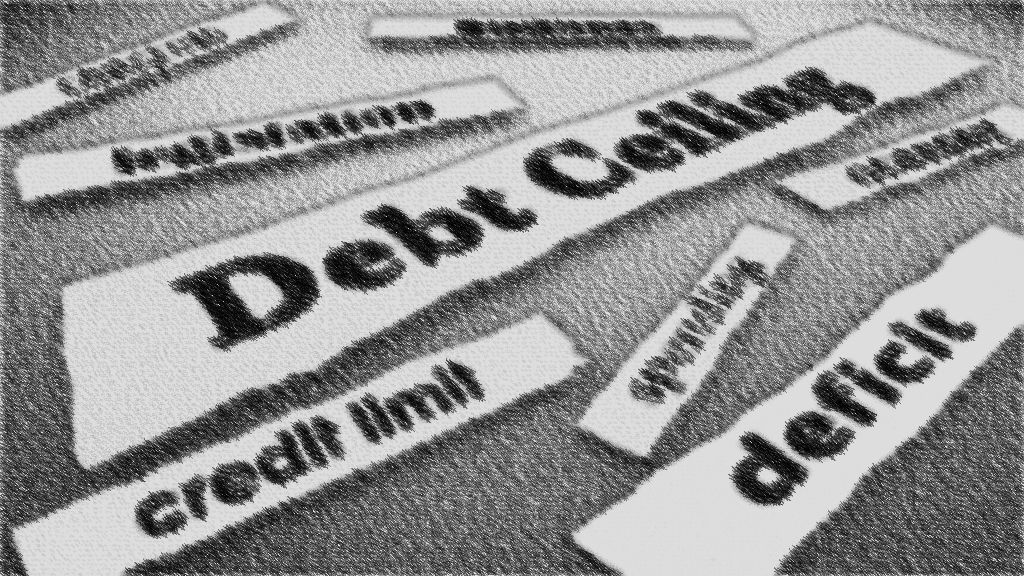KEY TAKEAWAYS
- If you want to continue borrowing, you must first show the bank that you are implementing reforms to reduce your borrowing, such as paying off part of your balance.
- Despite record tax revenues, the Treasury has hit its debt ceiling because spending has grown so wildly.
- Spending needs to be cut drastically, especially as rising interest rates are causing the borrowing costs on the debt to explode.
Much of the rhetoric around the debt ceiling is either hyperbolic or misinformed, partly because federal finance seems so obtuse. So, let’s look at the issue through the lens of common household finance and really think through the problem facing our nation.
Imagine that you constantly spend more than you earn and use a credit card to make up the difference. At some point, the card becomes maxed out and you cannot borrow more without getting a credit limit increase. You then request that the bank with which you have that credit card increase your limit. Since the balance that you owe is still relatively small compared to your income, the bank agrees, and you go on your merry way as your spending binge continues.
But it’s not long before you hit your credit limit again because you haven’t fixed the underlying problem of spending more than you earn. You request another limit increase, and the bank obliges. This process repeats until the bank begins to question your ability to repay the balance owed, even if you never miss a payment. Eventually, the hole becomes so deep that you will likely never be able to dig yourself out.
At that point, the bank turns down your requested limit increase because lending to you is no longer a sound investment. If you want to continue borrowing, you must first show the bank that you are implementing reforms to reduce your borrowing, such as paying off part of your balance.
Only then will you restore the trust you shattered by racking up a mountain of debt. Until then, your inability to charge your excess spending on credit forces you to forgo some outlays, including things you may have promised to purchase for other people.
But the problem is even worse than that, because rising interest rates are causing the monthly financing charge on your credit card to rise, even without that limit increase. Your existing debt is becoming increasingly unaffordable, and you must cut back your spending even more drastically to account for the higher financing charges each month.
This becomes a Sisyphean task as additional payments to your credit card merely go towards paying higher financing charges and not making any progress on the principle.
The national debt is the credit card, and the debt ceiling is the credit limit. Despite record tax revenues, the Treasury has hit its debt ceiling because spending has grown so wildly. In fact, tax receipts have never been higher, whether in nominal terms, adjusted for inflation, or as a percent of GDP.
So, the problem is not a lack of revenue, but too much spending. It’s like the household that desperately needs to cut expenses, not get additional income—its income has never been higher.
And neither has federal debt, which is now larger than the entire economy. Imagine having a credit card with an outstanding balance larger than not just your annual income, but about five times your income—that’s the equivalent of where the federal government’s debt is relative to the federal government’s income.
That’s clearly problematic, but its not Armageddon. Not yet.
To avoid a sovereign debt crisis, something roughly akin to personal bankruptcy, the country’s finances need to change direction. Spending needs to be cut drastically, especially as rising interest rates are causing the borrowing costs on the debt to explode, even though the total debt outstanding isn’t rising.
Any increase in the debt ceiling, if one is granted at all, must be accompanied by comprehensive spending reforms which demonstrate the government’s ability to live within its means. Increasing the debt ceiling with no preconditions will only continue the nation down the path to insolvency, just like a credit card with no limit would lead a household to financial calamity.
About EJ Antoni
EJ Antoni is a research fellow for Regional Economics in the Center for Data Analysis at The Heritage Foundation.
By EJ Antoni






